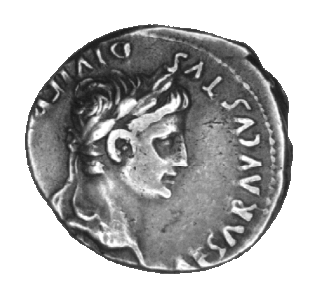 Contents -
Previous Article -
Next Article
Contents -
Previous Article -
Next Article
"And it came to pass in those days, that there went out a decree from Caesar Augustus, that all the world should be taxed."
Ever since the time of the Roman Emperor Augustus, people have been reading these words in the Book of Luke of the Bible. At the time of the birth of Jesus, the Roman Empire was the strongest one in the world and the Roman government had the power to tax the whole civilized European world. Far-off China was not under Roman rule, nor were the barbarians far to the North nor the kingdoms in Africa and India. The Roman world at that time was peaceful and prosperous, and much of the credit for this can be given to Augustus and his government. Augustus was the title given to the young Octavian, adopted nephew of Julius Caesar by the Roman Senate in 27 B.C. The people of Rome were so tired of the civil war that had ravaged their world for so long that they put their faith in a man who told them that he could end the strife. After having defeated his major rival Marcus Antonius at the Battle of Actium in 31 B.C., Octavian slowly and carefully introduced needed reforms. In a calculated move designed to help him consolidate power in his own hands while gaining the cooperation of the Senate, he resigned the dictatorship and announced that he was becoming a private citizen again. The senators were so pleased with the way he had put an end to the civil wars and afraid that they would resume after his retirement that they begged him to continue running the government. Augustus' uncanny political abilities and his meticulous attention to detail provided a stable government that brought peace and prosperity to the Roman Empire for the next two hundred years.
Go to next article on Agrippa
Go back to previous article on Lepidus